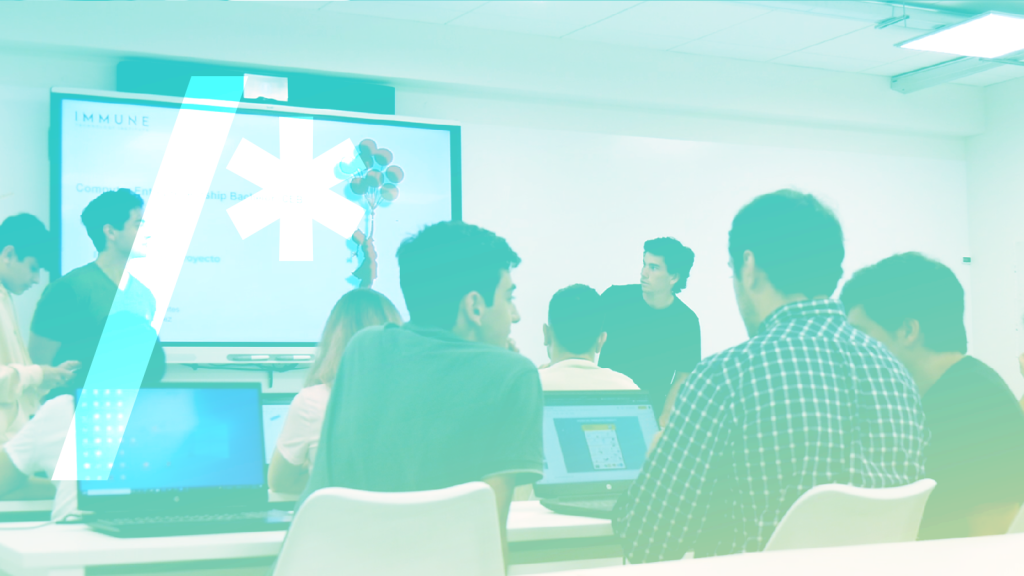Alan Gómez. Psychopedagogist, and member of the DepartaTalent Development at IMMUNE Technology Institute
"And now, please teach us some really important things," Mafalda shouts to a teacher who looks on in astonishment. I'm sure she's much clearer about the benefits of the project-based education.

The student's complaint about the gap between school and realityis commonplace. When school content ignores and forgets the lives of students outside the school environment or when it requires only a memorised repetition on the part of the student, it generates a learning experience detached from reality, fragmented, empty of context and therefore demotivating. It is at these moments that we are all Mafalda.
The project-based education is not a current educational model, it has been around for years. However, with its transformations, it is still trying to respond to this problem.
What are the advantages of project-based education?
- It puts the pupil at the centre of the educational task. It makes them the protagonist of their learning process. This means that their needs, starting points and motivations are taken into account. This reinforces learners' curiosity, engagement and participation.
- It considers, not only the technical aspects of the content to be taught, but also what is known as the soft skills or soft skills. These are, for example, critical thinking, teamwork, creativity, commitment, frustration tolerance, decision making, among others. Skills that, nowadays, are difficult to dissociate from any professional profile.
- The contents are worked on from a practical approach and interdisciplinary. In this way, learning is integrated and not disconnected from each other and from reality.
- The learning revolves around the realisation of projects that tend to respond to real problems or situations. These projects are easily articulated with the student's areas of interest. For example, Raquel Izquierdo, winner of the Technology and Sport 2022 competition organised by IMMUNE, with her project 'Technology and Sport 2022'.Graph theory applied to football: Analysis of Atlético de Madrid's style of play.‘, en el que se analiza al equipo rojiblanco a través de las matemáticas.
- Develops the self-esteem of pupils who take pride in achieving projects that go beyond the walls of the classroom and have an impact on the whole school or on a societal level.
How to implement project-based education
At IMMUNE Technology Institute we are enriched by the advantages of this educational model. We are faithful to the idea that we educate the top software developers on a technical level, but also on a human level.
At a technical level, because we designed a programme based on a practical methodology and oriented towards real case studies.
On a human level, because we are aware that the current professional context demands:
- Creativity and commitment to find solutions to everyday problems.
- Tolerance to learn from mistakes.
- Teamwork and collaborative, as large projects are not carried out by a single person.
- Openness to the diversitywhich becomes a value in itself by accepting different points of view.
For this reason, our Software Development Engineering combines areas of current technological specialisation (Cybersecurity, Data Science, Cloud Computing, Blockchain, Robotics, Video Game Development), with a module on human sciences in which the soft skills, and which is transversal to the whole career.
Do you want information about the Software Development Engineering Degree? Fill in the form for more information.
